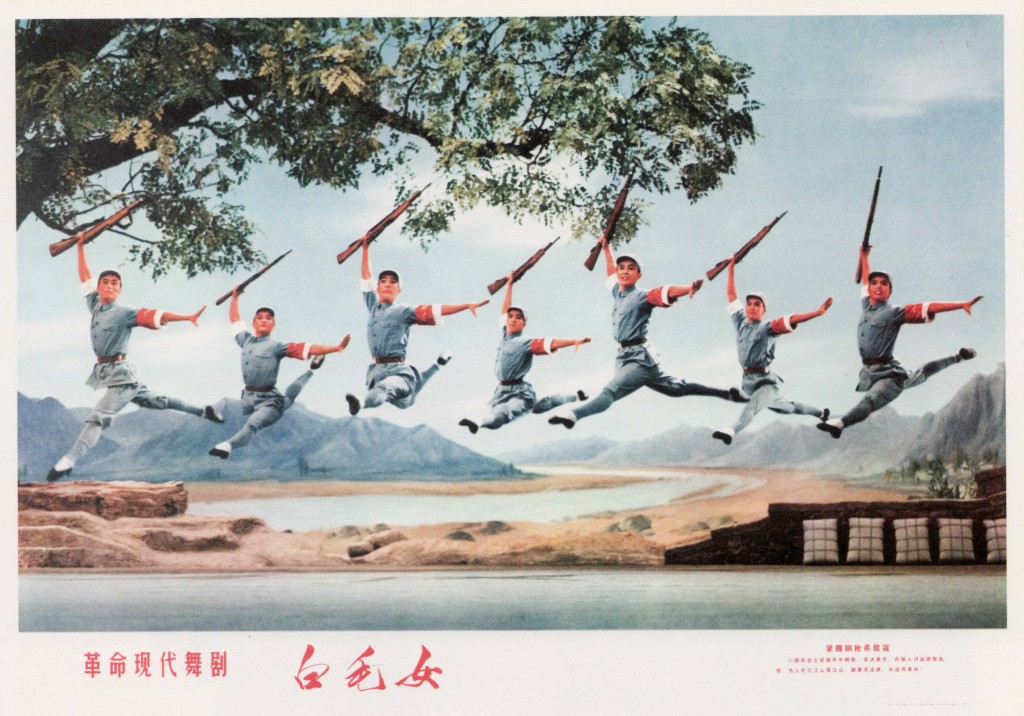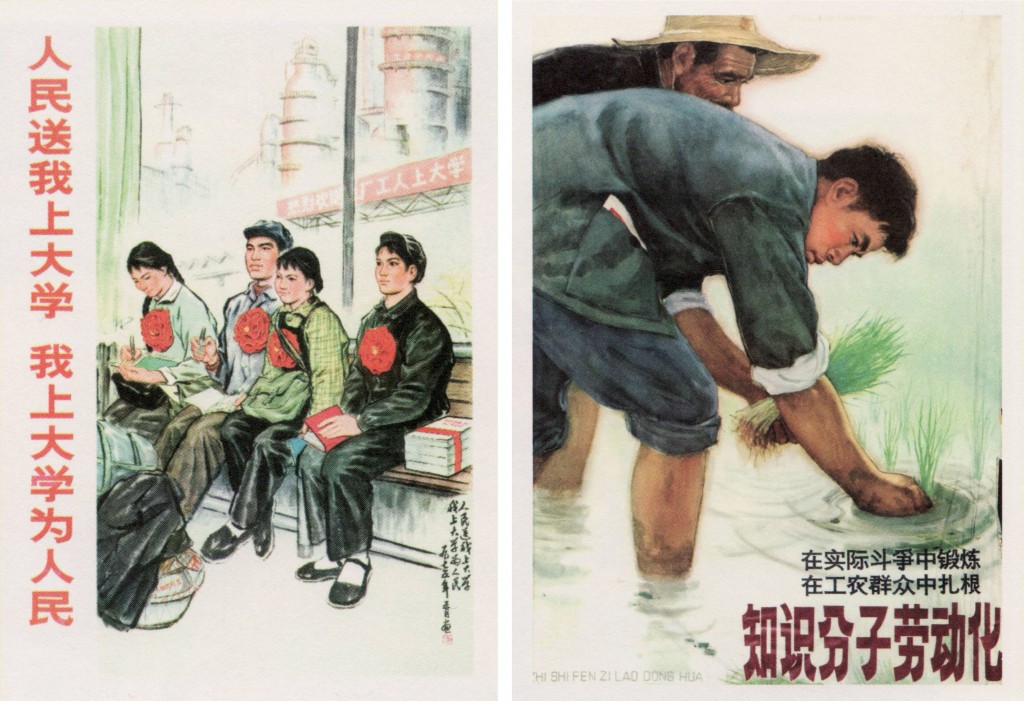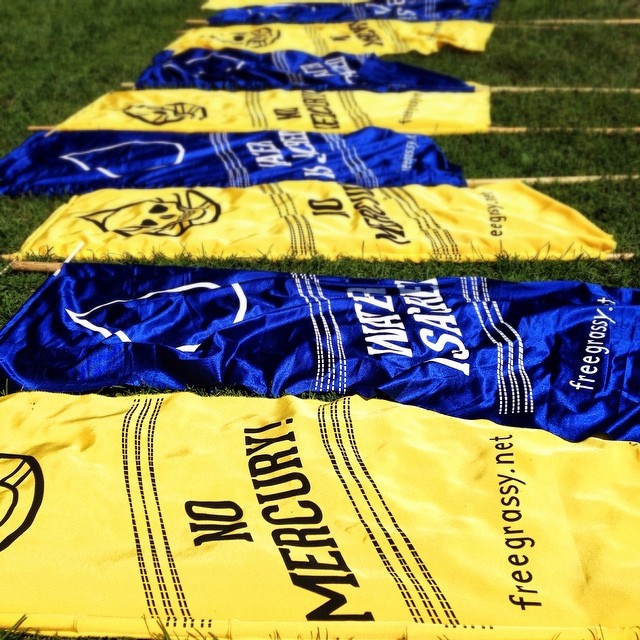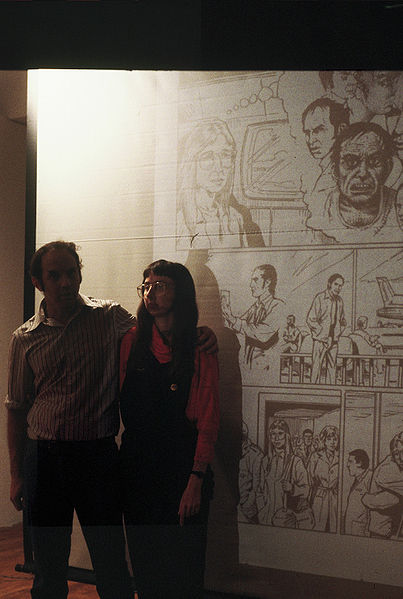(Left) The people send me to the university, I go to university for the people. Artwork by Yu Dawu; published by People’s Fine Art Publishing House, 1976. 106 x 77 cm.
(Right) Work half-time, study half-time. Artwork by Zhao Zheng, Jin Kequan, published by People’s Fine Art Publishing House, 1965. 54 x 77 cm.
From Chinese Posters: Art from the Great Proletarian Cultural Revolution
by Lincoln Cushing and Ann Tompkins, Chronicle Books, 2007.
Ever since reading Lincoln Cushing’s Agitate! Educate! Organize! American Labor Posters I have been trying to get my hands on all the other books on political posters that he has helped to produce.
His book with Ann Tompkins on Chinese posters is quite good, and I much prefer it to the Prestel edition on Chinese posters, but the state-produced subject matter and style of socialist realism didn’t really connect with me on a political level.
An exception to the rule, the two posters above did resonate with me, perhaps infiltrating through my deep level of disaffection with the education system. The poster entitled The people send me to the university, I go to university for the people touches on my feelings about accountability of the university and its students to the wider community, while the poster Work half-time, study half-time reminds me of the importance of balance and the way that university can be so totalizing, disallowing or disavowing community engagement, and often so inaccessible for working people.
I have encountered similar principles of mutual accountability in articulations of Chicanismo – where Chicanas and Chicanos have committed to holding institutions accountable to the community while also committing to hold themselves accountable by giving back to the community and, in the case of academics, producing work that is actually useful for the community.
After reading this book, I began reading some Mao and came across this passage on “book worship”. Although the intent of the piece is to denounce dogmatism – following orders from above or what is written in a book without question or consideration for context – it is also a critique of a lack of community-engaged practice, or in this case “social investigation”.
“Oppose Book Worship” by Mao Zedong (1930)
To carry out a directive of a higher organ blindly [sic], and seemingly without any disagreement, is not really to carry it out but is the most artful way of opposing or sabotaging it.
The method of studying the social sciences exclusively from the book is likewise extremely dangerous and may even lead one onto the road of counter-revolution. Clear proof of this is provided by the fact that whole batches of Chinese Communists who confined themselves to books in their study of the social sciences have turned into counter-revolutionaries. When we say Marxism is correct, it is certainly not because Marx was a “prophet” but because his theory has been proved correct in our practice and in our struggle. We need Marxism in our struggle. In our acceptance of his theory no such formalisation of mystical notion as that of “prophecy” ever enters our minds. Many who have read Marxist books have become renegades from the revolution, whereas illiterate workers often grasp Marxism very well. Of course we should study Marxist books, but this study must be integrated with our country’s actual conditions. We need books, but we must overcome book worship, which is divorced from the actual situation.
How can we overcome book worship? The only way is to investigate the actual situation.
 (Bottom) Modern revolutionary dance play: White Haired Woman. Artist unknown; published by Shanghai People’s Publishing House, 1972. 53 x 77cm.
(Bottom) Modern revolutionary dance play: White Haired Woman. Artist unknown; published by Shanghai People’s Publishing House, 1972. 53 x 77cm.




